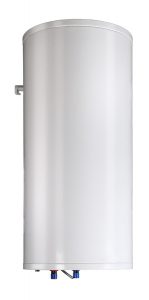 The Water Heater in Winter. Not exactly a dramatic or thrilling name for a story, but it’s a story we want to tell anyway, because it’s important for our customers and potential customers to know about issues they may face during the winter with their water heaters in Fenton, MI.
The Water Heater in Winter. Not exactly a dramatic or thrilling name for a story, but it’s a story we want to tell anyway, because it’s important for our customers and potential customers to know about issues they may face during the winter with their water heaters in Fenton, MI.
You can always count on our dedicated team of technicians if you need water heater assistance this winter (or any other season). If you’re interested in new water heater installation, we can provide you with a free estimate: simply call our offices to arrange for an appointment. We aim to make your home happy!
Why a Water Heater Works Harder in Winter
You can understand why the furnace or other heating system in your home is busier in winter. That’s the time when it actually needs to run! During summer, the heater will probably never come on. A water heater, however, regardless of whether it’s a storage tank model or a tankless one, runs almost every day, no matter the weather. Why would that mean more work in winter?
You might have already guessed that there’s a larger need for hot water during cold weather, and this is partially right. People may end up taking longer showers to feel more comfortable, or take extra warm baths. But this isn’t the principal reason you’ll notice a winter increase in heating bills with your water heater.
The issue a water heater confronts during colder weather is that colder fresh water is entering it. You may have a warm house, but the municipal pipes bringing water to your house and into the water heater is colder than usual, losing heat as it moves to your indoor plumbing. The water heater needs to expend more energy to raise the temperature of the water to the settings on the aquastat.
If you think your water heating bills are too high in winter, you can adjust the aquastat lower. We recommend setting it around 120°F. (Make sure you never turn the aquastat higher than 140°F, no matter the situation, as this creates a scalding hazard.) However, an increase in heating bills often warns the water heater has a malfunction or excess amount of sediment built up in it. It could also be failing due to age. Call our technicians to investigate, and we’ll find out if the water heater needs repairs or if it’s best to schedule a replacement.
Never Hesitate to Get a New Water Heater in Winter If Necessary
We know it sounds like a pain to have to replace a water heater during the coldest part of the year, but if our technicians think it’s the best method to fix troubles or escalating bills, we advise you don’t delay on scheduling this. When you have a water heater that’s over 20 years old, it’s at an increasing risk of a full shutdown or large leaks. The sudden loss of your hot water, leaving you to frantically schedule an emergency replacement, is not something you want to deal with!
